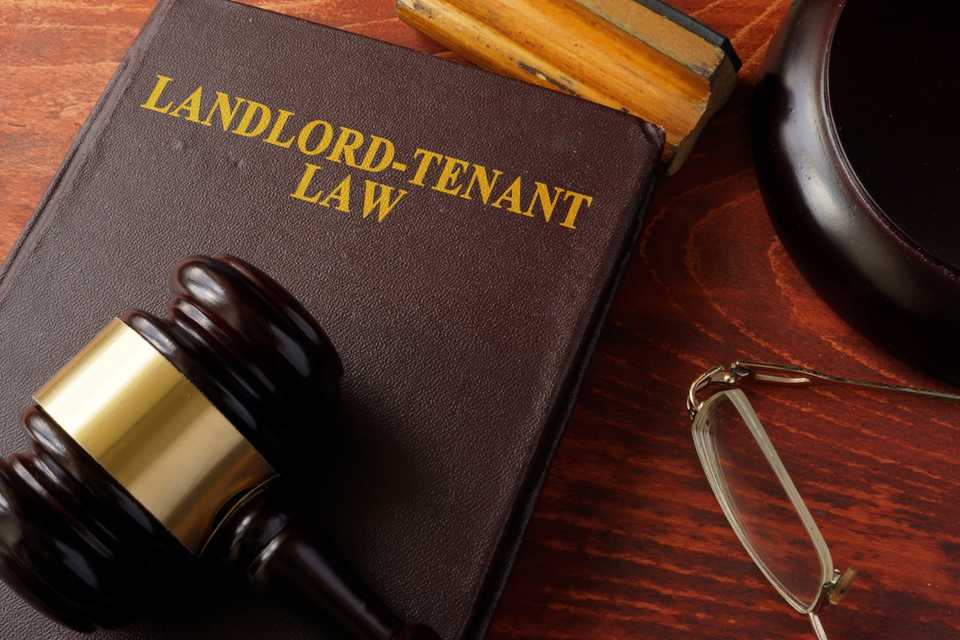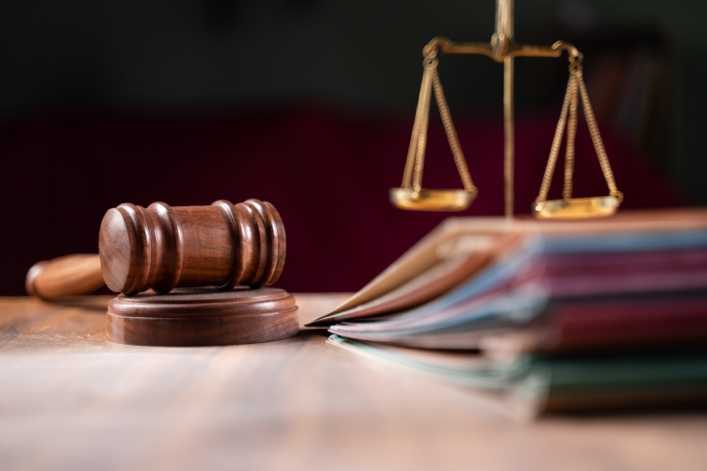Landlord and tenant disputes have become all too common today*,* and their prevalence is a cause for concern. These conflicts arise in various forms, ranging from:
- disagreements over lease terms and conditions
- disputes regarding rent payments,
- maintenance responsibilities,
- or even the unfortunate event of eviction.

The repercussions of these disputes can be far-reaching and profoundly impact the lives of both landlords and tenants.
After all, our living arrangements and situations form the very foundation of our daily lives and have a direct influence on our overall well-being and quality of life.
For tenants, a dispute with their landlord can lead to immense stress, insecurity, and even the risk of homelessness. They may find themselves facing unjust rent increases, substandard living conditions, or an unfair eviction process.
Such circumstances can disrupt their sense of stability, affect their mental and physical health, and hinder their ability to maintain a safe and comfortable home environment.
Moreover, tenant disputes often involve individuals or families with limited financial resources, exacerbating their vulnerability and making it difficult to access legal support to navigate the complexities of the situation.

On the other hand, landlords also face significant challenges when conflicts with tenants arise. These disputes can be financially burdensome, time-consuming, and emotionally draining.
Landlords may encounter tenants who fail to pay rent on time or neglect their responsibilities to maintain the property.
This can lead to a loss of income, financial strain, and the need to invest additional resources to address property damages or legal proceedings.
For responsible landlords who genuinely care about providing suitable housing, such disputes can be disheartening, as they strive to create a safe and nurturing environment for their tenants.
The unfortunate reality is that the occurrence of landlord and tenant disputes is not limited to a specific demographic or geographic location. Regardless of social or economic standing, individuals from all walks of life can find themselves embroiled in such conflicts.
Recognizing the importance of finding fair and effective resolutions is essential to safeguard the well-being and rights of both parties involved.
A harmonious living environment is not only crucial for the immediate individuals involved but also contributes to the overall stability and cohesion of communities.

Efforts should be made to improve communication, enhance understanding of rights and obligations, and establish mechanisms for effective dispute resolution.
This can involve legal support, mediation services, and educational initiatives to empower both landlords and tenants with the knowledge and tools needed to prevent conflicts or address them promptly and fairly when they arise.
By fostering a cooperative and empathetic approach, we can strive towards a future where landlord and tenant disputes are minimized, allowing individuals to enjoy secure and comfortable living arrangements that positively impact their overall quality of life.
In this article we’ll look at what you can do if you find yourself in a disagreement with you landlord in Canada.
Landlord-Tenant Relationships and Legal Strategies for Conflict Avoidance in Canada
Maintaining a good relationship with your landlord as a tenant is crucial for a harmonious living experience. By fostering open communication, mutual respect, and adherence to contractual obligations, tenants can minimize the chances of conflicts arising. In the Canadian legal context, there are several strategies tenants can employ to avoid disputes and navigate any potential conflicts that may arise.

Word of advice: Read your lease agreement
Firstly, it is essential for tenants to thoroughly review and understand the terms and conditions of the lease agreement before signing.
This includes knowing their rights and responsibilities as outlined in the relevant provincial or territorial residential tenancy legislation.
Being aware of these legal provisions can help tenants make informed decisions and prevent misunderstandings or disagreements down the line.
If you feel like the lease presents challenging themes or elements, you can seek the help of a licensed attorney to guide you in your decision making!
Regular and timely rent payments are vital for maintaining a positive relationship with the landlord. Paying rent on time not only fulfills a contractual obligation but also demonstrates reliability and respect for the landlord's investment.
Keeping a record of rent payments and ensuring they are made through a traceable method, such as cheques or electronic transfers, can provide evidence in case of any future disputes.

Maintaining open lines of communication with the landlord is key. If there are concerns or issues related to the property, it is advisable to report them promptly and in writing, keeping a copy for documentation purposes.
This allows the landlord an opportunity to address the concerns in a timely manner. It is important to approach these communications in a polite and respectful manner, focusing on resolving the matter rather than escalating tensions.
Avoiding litigation: Alternative dispute resolution mechanisms
When conflicts do arise, tenants should familiarize themselves with the dispute resolution mechanisms available in their province or territory.
Canadian jurisdictions offer various options, such as mediation services, residential tenancy tribunals, or small claims courts, to resolve landlord-tenant disputes.
Seeking legal advice from a qualified lawyer or contacting tenant advocacy organizations can provide valuable guidance on the specific procedures and legal remedies available.
Ultimately, by maintaining a good relationship with the landlord and proactively addressing any issues that may arise, tenants can minimize the chances of conflicts escalating into lengthy and costly legal battles.
The following are some key strategies for tenants to navigate the Canadian legal landscape and foster a positive living environment:
- Being informed about their rights and responsibilities
- Fulfilling contractual obligations
- And engaging in open respectful communication
How to Build a Strong Case against Your Landlord?
Building a strong case against your landlord requires careful planning, attention to detail, and a thorough understanding of your rights as a tenant. In order to protect your interests and pursue legal recourse, there are several important steps to consider.

The fundamentals: Collecting Evidence
Documenting evidence is crucial in building a compelling case. Keep detailed records of all interactions with your landlord, including dates, times, and summaries of conversations or incidents. Preserve any written communication such as emails, letters, or text messages.
PRO-TIP – Take photographs or videos to document any property-related issues or violations. Gathering evidence strengthens your position and provides tangible proof of the problems you have encountered.
Communication is key: Clearly State Violations
When addressing concerns with your landlord, it is important to clearly and explicitly communicate the specific violations or breaches of the lease agreement.
State the issues in writing, outlining the problems you have experienced, the relevant lease provisions that have been violated, and the impact these violations have had on your enjoyment of the premises. Clearly articulating the violations helps establish a factual basis for your case.
Escalation and Legal Remedies
If your initial attempts to resolve the issues with your landlord have been unsuccessful, you may need to escalate the matter legally. Research and understand the applicable residential tenancy laws in your jurisdiction to determine your rights and the available legal remedies.
Consider consulting with a lawyer specializing in landlord-tenant disputes who can provide guidance on the best course of action. Depending on the nature and severity of the violations, potential legal options may include filing a complaint with a local housing authority, initiating mediation or arbitration proceedings, or pursuing a lawsuit in civil court.

Engaging the services of a qualified lawyer experienced in landlord-tenant disputes can be invaluable in building a strong case.
They can provide legal advice, review your documentation, assess the strength of your case, and guide you through the legal process.
A lawyer can also negotiate with your landlord on your behalf or represent you in court, maximizing your chances of a favorable outcome.
Remember, building a case against your landlord requires a systematic approach and a commitment to following legal procedures. It is important to act promptly, be proactive in collecting evidence, clearly state the violations you have experienced, and seek appropriate legal guidance.
By taking these steps, you can protect your rights as a tenant and work towards a resolution that addresses the issues you have faced.
Common Tenant and Landlord Disputes in Canada: Understanding Available Legal Remedies
Tenant and landlord disputes can arise due to various issues, and understanding common examples of these conflicts and the available remedy in the Canadian legal context is essential.
Here are some typical examples of disputes and the potential remedies for tenants and landlords:
- Rent Increase Disputes: When a landlord proposes a rent increase that a tenant considers unreasonable, they can challenge it through the appropriate provincial or territorial residential tenancy board.
These boards have the authority to review and approve rent increases based on specific guidelines and regulations.
- Maintenance and Repair Issues: If a landlord fails to address necessary repairs or maintain the property in a habitable condition, tenants have rights to a safe and well-maintained living environment.
They can communicate the issues in writing to the landlord, highlighting the specific problems and requesting repairs.

If the landlord does not respond or neglects to take appropriate action; tenants can seek remedies such as rent abatement (reducing or withholding rent), filing a complaint with the local housing authority, or initiating legal action.
- Lease Agreement Violations: If a landlord breaches the terms of the lease agreement, tenants can take action to enforce their rights. This may involve sending a written notice to the landlord, clearly stating the violation and requesting corrective measures.
If the landlord fails to comply, tenants may have the right to terminate the lease, claim damages, or seek a court order for specific performance.

- Illegal Evictions: In cases where landlords attempt to evict tenants without following proper legal procedures, tenants have legal protections.
They can challenge an illegal eviction by filing a complaint with the residential tenancy board or seeking legal representation to defend their rights.
The remedies can include reinstatement of tenancy, compensation for damages, or legal injunctions against the landlord's actions.
- Security Deposit Disputes: Disagreements over the return of the security deposit at the end of the tenancy are common. Tenants can request the return of their deposit in writing and provide evidence of the property's condition at the beginning and end of the tenancy.
If the landlord withholds or deducts an unreasonable amount from the deposit, tenants can pursue a claim through the applicable residential tenancy board or small claims court.
It's important for both tenants and landlords to familiarize themselves with the residential tenancy laws specific to their province or territory in Canada. These laws outline the rights and obligations of both parties and provide a framework for resolving disputes.
Seeking legal advice from a lawyer specializing in landlord-tenant matters can also be beneficial in understanding the available remedies and navigating the legal process effectively.
By being aware of their rights and taking appropriate action , tenants and landlords can address common disputes and seek remedies within the Canadian legal system, fostering a fair and equitable resolution to their conflicts.
Find a Lawyer to Resolve your Tenant and Landlord Dispute!
At the end of the day, common tenant and landlord disputes in the Canadian context is crucial for both tenants and landlords to protect their rights and seek appropriate remedies.
By being aware of the available legal options and seeking professional guidance when necessary, individuals can navigate these conflicts effectively.

If you find yourself involved in a landlord dispute and require legal assistance, JuriGo services can help match you with a qualified attorney experienced in landlord-tenant matters.
Their expertise can provide invaluable support at any stage of your dispute, ensuring your rights are protected and helping you achieve a fair resolution.
Don't hesitate to seek the assistance you need to address your landlord dispute effectively and assert your rights as a tenant.